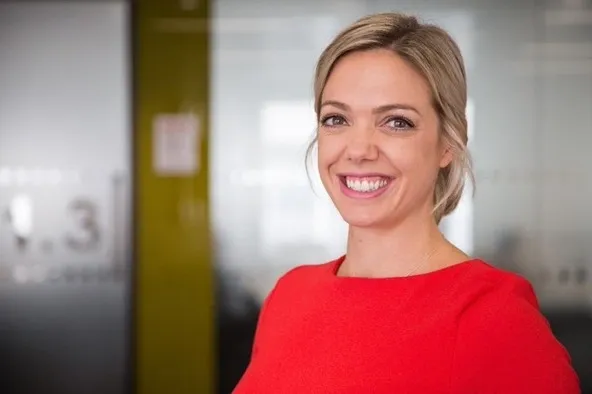My career into health and safety wasn’t very conventional. I’m actually a registered nurse and ended up in an Occupational Health nursing role during the construction for the London 2012 Olympic Games. This was my first step into occupational health, and I loved it. It meant helping well people stay well, rather than working at a busy A&E department dealing with trauma and emergency care on a daily basis. Not only did I love occupational health, but I fell in love with construction at the same time. Even then I was able to recognise the huge opportunity within the industry to make it as healthy and safe as possible.
Several years later I took my knowledge and experience from the Olympics and set up an occupational health service for a contractor on Crossrail, a multi-billion pound railway construction project in the UK. This was when my eyes were opened to the bigger picture of health and safety. I completed my NEBOSH General Certificate, as the Head of Health and Safety at the time recognised how we needed to take a more ‘health like safety’ approach. I believe this course is what changed my career path and gave me the core knowledge I required to communicate with the construction teams in a way they were familiar with. I also knew there was a gap in health risk management, and I wanted to build more on the ‘prevention is better than cure’ mindset and decided to do a full time MSc in Occupational Health.
Currently I’m the Head of Occupational Health, Safety and Wellbeing at Tideway in London, an infrastructure project referred to as the ‘super sewer’. I had originally joined as their Head of Occupational Health, but my role expanded to create a more integrated approach between health and safety. I believe a fundamental responsibility for a health and safety professional today is ensuring their organisations achieve relative parity between health and safety. Safety has previously taken priority due to its immediate impact but the growing focus on health in recent years ensures there is a better balance between the two areas. More and more is being expected from a ‘safety’ professional to ensure they manage health risks in the same way.
As Tideway nears completion, I’m now working part time but have set up my own business that specialises in providing services to help construction companies design and implement their own health, hygiene and wellbeing strategies. Even though my background is nursing, 99 percent of the work I deliver now doesn’t require me to use that skillset. However, having the knowledge and passion for health and wellbeing really does make a difference.
Advice for the next generation
For anyone starting out in a health and safety career, or thinking about it as an option, I think passion is an incredibly important attribute to have. But to consider that the old-fashioned preconceptions of health and safety being about compliance and walking around with clipboards telling people what they’ve done wrong, is incredibly misplaced. Times have moved on and the industry is far more proactive than many people would credit. In fact, most organisations really value health and safety, it’s seen as an essential component in achieving their success.
I do remember getting embarrassed about telling people I worked in health and safety, just in case they had these old-fashioned views. Now, I talk with pride, explaining that I make a difference to people’s lives.
Whilst health and safety roles are incredibly varied and the remit is wide, in my opinion, those best cut out for job within the industry tend to be a ‘people person’ who really believe in what they are doing. There are occasions where you will have to influence people about why health, safety and wellbeing is so important, so having clear passion for what you do and being good with people makes the job a lot easier.
In addition, having a sharing and collaborative nature will not only benefit you, but your company and the industry as a whole. In this industry, we don’t need a competitive edge, we need to make sure everyone stays safe, well and healthy. Therefore, we are all striving for the same thing, so build networks with your peers, volunteer for working groups, share your successes (and failures) and ask lots of questions. Often, we waste time try to reinvent the wheel, whereas learning from others can be just as influential as attending courses.



